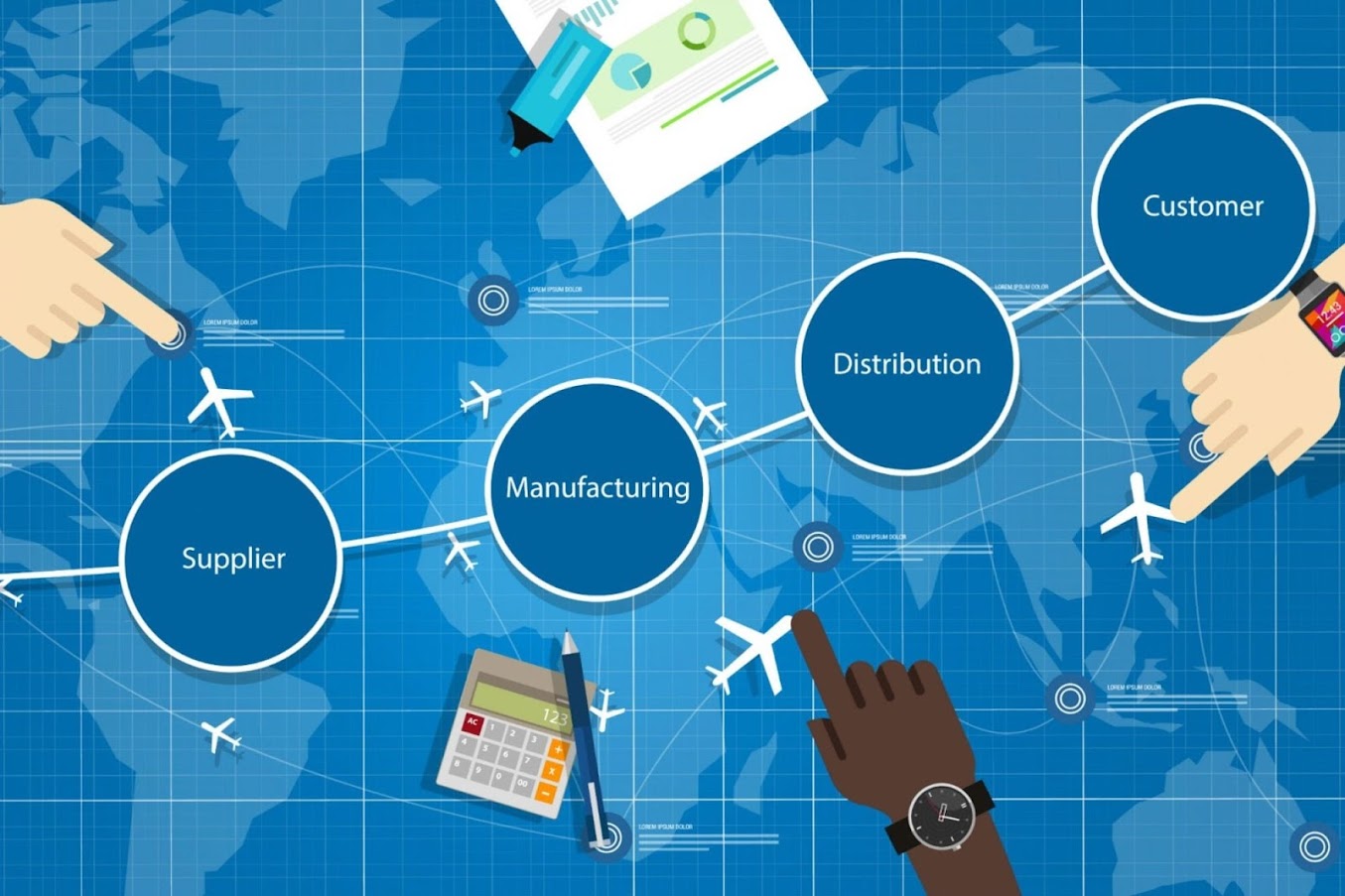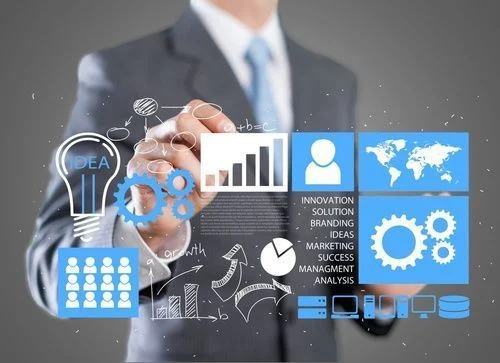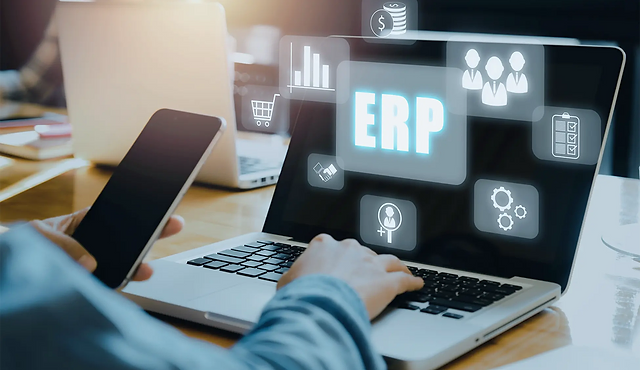If you run a business, you know that Enterprise Resource Planning (ERP) software is essential to managing your operations. With so many options on the market, it can be difficult to know which ERP system is the best fit for your business. In this guide, we’ll explore the top ERP systems for businesses and provide everything you need to make an informed decision.
What is ERP Software?
Enterprise Resource Planning (ERP) software is a suite of applications that help businesses manage their day-to-day operations. These applications typically include features such as accounting, inventory management, human resources, and customer relationship management. ERP software provides businesses with a seamless way to integrate all of these different functions into one system, streamlining workflows and improving efficiency.
How to Choose the Best ERP System for Your Business
When choosing an ERP system for your business, there are several factors you should consider. Here are some key questions to ask when evaluating different ERP options:
What are your business needs?
Before you start looking at specific ERP systems, it’s important to identify your business needs. Consider the size of your business, number of employees, industry, and current pain points. This will help you identify what features and functionalities you need from an ERP system.
What is your budget?
ERP systems can vary widely in price, so it’s important to establish a budget before starting your search. Keep in mind that while some ERP systems may have a higher upfront cost, they may save you money in the long run by streamlining processes and increasing efficiency.
What level of customization do you require?
Do you need a fully customized ERP system, or can you work with out-of-the-box solutions? Depending on your business needs, you may require a high level of customization to meet your unique requirements.
What is the implementation process?
Implementing a new ERP system can be a complex process, so it’s important to understand what the implementation process looks like for different ERP systems. Consider factors such as timeline, resource requirements, and potential disruptions to daily operations.
Pros and Cons of ERP Systems
ERP systems offer a number of benefits for businesses, but there are also some potential drawbacks to consider. Here are some pros and cons of using an ERP system:
Pros:
- Streamlined workflows: ERP systems can help automate many repetitive tasks, reducing the time and effort required to manage day-to-day operations.
- Improved data accuracy: By integrating all aspects of your business into one system, ERP software can help ensure that data is accurate and up-to-date.
- Increased efficiency: With real-time access to information, employees can make better-informed decisions, improving overall productivity.
- Better reporting and analytics: ERP systems provide businesses with powerful reporting and analytics tools, making it easier to identify areas for improvement and make data-driven decisions.
Cons:
- Upfront cost: The initial investment required to purchase and implement an ERP system can be significant.
- Complexity: ERP systems can be complex, requiring expertise to set up and maintain.
- Implementation time: Implementing a new ERP system can be a time-consuming process, potentially causing disruptions to daily operations.
- Training requirements: Employees may require training to effectively use the new ERP system.
Top ERP Systems for Businesses
Now that you know what to look for when evaluating different ERP systems, let’s take a closer look at some of the top options on the market today.
1. NetSuite
NetSuite is a cloud-based ERP system designed for small to midsize businesses. It includes features such as financial management, inventory management, and CRM. NetSuite is known for its flexibility and scalability, making it a great choice for growing businesses.
2. SAP Business One
SAP Business One is an ERP system designed for small to midsize businesses. It includes features such as accounting, inventory management, and CRM. SAP Business One is known for its robust reporting and analytics capabilities.
3. Microsoft Dynamics 365
Microsoft Dynamics 365 is a cloud-based ERP system that includes features such as financial management, supply chain management, and project management. It’s designed to be highly customizable, making it a great option for businesses with unique requirements.
4. Oracle Cloud ERP
Oracle Cloud ERP is a cloud-based ERP system designed for midsize to large businesses. It includes features such as financial management, procurement, and supply chain management. Oracle Cloud ERP is known for its powerful reporting and analytics capabilities.
Alternatives to ERP Systems
While ERP systems provide many benefits, they may not be the best fit for every business. Here are some alternative solutions to consider:
1. Accounting software
If your business only requires basic financial management features, such as invoicing and expense tracking, then accounting software may be a more cost-effective solution than an ERP system.
2. Point of sale (POS) systems
For businesses that primarily sell products, a POS system may be a better fit than an ERP system. POS systems are designed specifically for retail businesses, offering features such as inventory management and sales tracking.
3. Customer relationship management (CRM) software
If managing customer relationships is your primary concern, then a CRM system may be a better option than an ERP system. CRM systems provide tools for lead tracking, customer communication, and sales forecasting.
FAQs
Q1. What is the best ERP system for a small business?
A1. For small businesses, NetSuite and SAP Business One are both excellent options. Both systems offer robust features and are known for their flexibility and scalability.
Q2. Is cloud-based ERP better than on-premise ERP?
A2. Cloud-based ERP systems offer several benefits over on-premise solutions, including lower upfront costs and easier remote access. However, on-premise solutions may be a better fit for businesses with specific security or customization requirements.
Q3. How long does it take to implement an ERP system?
A3. The implementation process for an ERP system can vary depending on the complexity of the system and the size of the business. Generally, it can take anywhere from several months to a year.
Q4. Do I need to train employees on a new ERP system?
A4. Yes, it’s important to provide training to employees on any new system to ensure they can effectively use the software and take advantage of its features.
Q5. Can I customize an ERP system to meet my business needs?
A5. Yes, many ERP systems offer customization options to meet specific business requirements.
Conclusion
Choosing the right ERP system is crucial to managing your business effectively. By considering factors such as your budget, business needs, and implementation process, you can choose an ERP system that will help streamline workflows and improve efficiency. Whether you opt for a cloud-based solution like NetSuite or an on-premise solution like SAP Business One, investing in an ERP system can have a significant impact on your business’s success.



